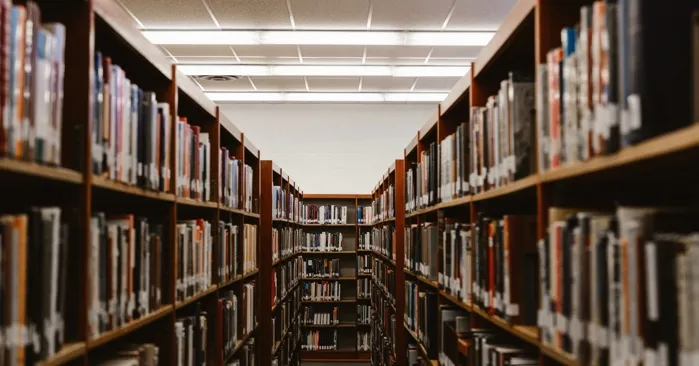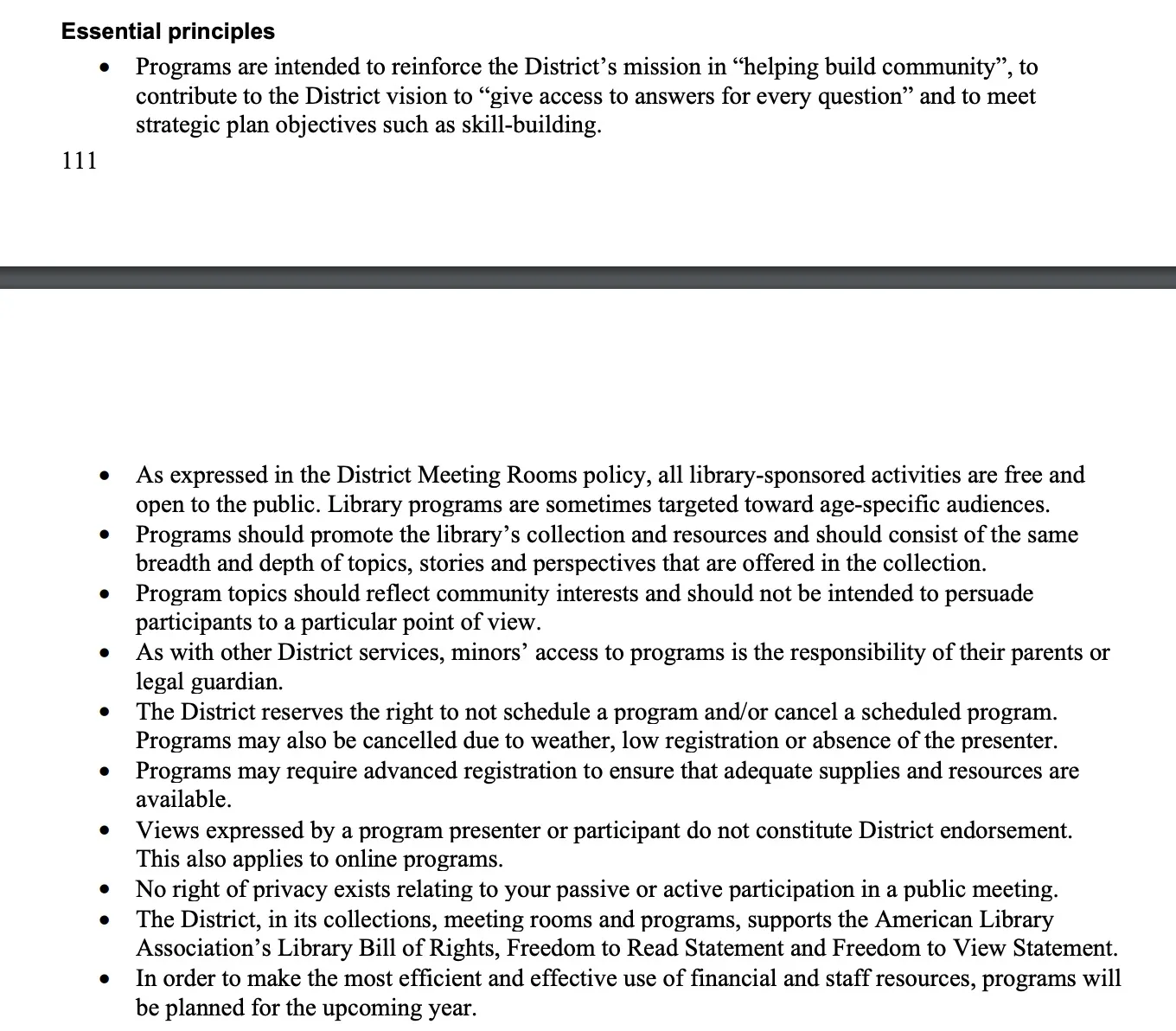
High Plains Library District Programming Policy Welcomes Censorship
“We need to remain neutral in all that we do.”
Those words emerged during a long board meeting in mid-November of the High Plains Library District (HPLD) in Colorado. The Board’s focus that evening was to reevaluate and update various library policies of the district, including the Programming Policy (beginning at page 111), which hadn’t been updated since April 2015.
One of the meeting attendees pointed out language in the newly updated policy that she felt was controversial (minute 50). This lead to the emphasis that libraries are neutral and should therefore not offer programming that doesn’t afford “both sides” to be represented.

Bullet point number four, “Program topics should reflect community interests and should not be intended to persuade participants to a particular point of view” ignited a conversation about librarian passions and where or how those might be appropriate for community programming. The Board dismissed what was brought up as something not to worry about, that it was intended to bolster the point above, “Programs should promote the library’s collection and resources and should consist of the same breadth and depth of topics, stories and perspectives that are offered in the collection.”
The changes to the Programming Policy, which include the steps by which a patron can lodge a complaint, were met with full approval of the Board.

Though it was clarified that “both sides” didn’t mean topics like The Holocaust, what was left unsaid in the discussion rings loudest. The ability to interpret that line in the policy opened the door to Administrative oversight of library programmings as a means of suppressing the sharing and engaging of ideas and conversation, even if it reflected the library’s “depth of topics, stories and perspectives.” The lack of clarity encourages subjectivity about what may or may not “persuade participants to a particular point of view.”
In the weeks that followed, librarians at various branches within the High Plains Library District were told they had to rename, change, or otherwise cancel a number of planned programs which no longer aligned with the new policy.
On December 9, a member of the Colorado Association of Libraries Intellectual Freedom Committee list-serv forward a message from a librarian within the HPLD shedding light on the Board’s new guidelines. Hours later, the post was retracted in fear of retaliation along the lines of what the original piece’s writer was seeing.
That librarian was Brooky Parks, Teen Librarian in the HPLD, who reached out to the Colorado Association of Libraries Intellectual Freedom Committee via their list-serv December 10, reposting the initial message that had been retracted the day before. Parks encouraged those reading to pass along the information to help educate others of what was happening and how to respond:
Due to the Programming Policy changes approved by the board, Administration told me that I have to:
Rename the Read Woke Book Club, because the Administration does not like the word “woke” (even though this is a reading program, created by School Librarian Cicely Lewis, that is offered across the nation by many public schools and public libraries). For more info on her Read Woke program: www.readwoke.com
Cancel the “Anti-Racism Workshop for Teens” program (before even reading the description of the program) that I scheduled Her Flowers (www.herflowersofficial.com) to provide in January 2022.
Cancel the “Resistance Through History, and You!” presentation (before even reading the description of the program) that I scheduled OASOS (www.BoulderCountyOASOS.org) to provide during PRIDE month, June 2022.
In addition, Erie Community Library’s Children’s Librarian was told to cancel a program that she was planning simply because it had the words “Social Justice” in the description.
Parks was fired from her job on December 16, 2021. She has retained legal counsel to address her termination from HPLD.
What Parks describes is censorship. This is not, as the Board member said, a means of being neutral. It’s a targeted policy meant to suppress and/or eliminate discussions related to anti-racism, to activism, to social justice, and to queer lives. These topics do not encourage “another side,” much as the Holocaust does not either — and all of these topics deeply reflect the collections within the HPLD.
As of writing, no formal Freedom of Information Act (FOIA) request has been submitted, nor has the Board or HPLD Administration clarified why requests were made for these specific programs to be changed or canceled. Because of the way the recording of the Board meeting was set up, with the agenda prominent, as opposed to the attendees, it isn’t possible to identify who said what.
The HPLD reached out to ALA’s Office of Intellectual Freedom for review and has since tabled further discussions of the policy at Board meetings until they hear back.
Parks is continuing to work with the Colorado Association of Libraries Intellectual Freedom Committee to get the language of the HPLD programming policy changed. She encourages continued efforts to spotlight this policy.
The actions taken by administration showcase censorship, but even more insidious is how policies like these invite quiet/soft censorship. Knowing the time, effort, and energy going into a program could be for nothing, library workers may choose to simply not offer vital and community-focused programs meant to educate and enrich their lives.
In no way is this “being neutral.”
Whether you’re a resident of this public library system, a library advocate, or want to support Parks and fellow colleagues in the system, a few steps you can take include:
- Share this information. Knowledge is empowering, and knowing what suppression of Intellectual Freedom looks like can be tricky. This is a pretty textbook example of how it works, even if that was not the Board’s intention.
- Remember that libraries are not, nor should they ever be, neutral.
- Email HPLD Administration and share your feedback with them: Matthew Hortt, Executive Director: mhortt@highplains.us; Rosa Granado, Associate Director of Public Services: rgranado@highplains.us; Marjorie Elwood, Associate Director of Public Services: melwood@highplains.us.
- Email the Board of Trustees and share your feedback with them: Contact Board of Trustees – Formstack.
- Write a letter to the editor of the Boulder Daily Camera: Daily Camera letter to the editor (forms-db.com). Do the same for other local newspapers in the High Plains Library District vicinity.
- Attend, if possible, the next HPLD board meeting, scheduled for Monday, February 14 at 5 pm MST.